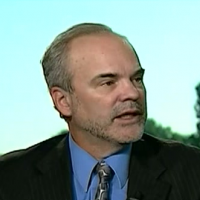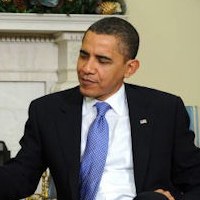![]()
Fri, March 22, 2013 | RubinReports | By Barry Rubin
After some years, marked by tensions between them, the baron decided to pay an unexpected visit to the village. The people were very excited and turned out to give him a warm welcome. The mayor and the baron spoke of the eternal friendship between the castle and the village.
Everyone cheered, especially when the baron promised his help in defending the village from dangers prowling around its borders. The baron urged the village to make peace with those forces but said he understood if it couldn’t do so and confirmed his support for the village’s right of self-defense.
The people were pleased but the mayor remarked to the town clerk: “Funny he didn’t mention his ongoing role in creating the problem.”
Still, the visit of Baron Viktor Frankenstein could be considered a big success.
Of course, President Barack Obama did not fully create the new monstrous threats facing Israel as much as Frankenstein did his monster. But the president did a lot to nurture these problems to life or made them much worse by coddling Iran for most of his first term, taking a soft stance toward Syria, praising the Turkish regime despite its anti-Israel and even antisemitic activities, and encouraging or even supporting Islamists who took over Egypt and are seeking to take over Syria.
Make no mistake. Obama’s visit to Israel and the Palestinian Authority did mark an important shift but only on part of his policy. He has given up on promoting the “peace process” as a high priority.
While publicly his administration blames Israel more, it also acknowledges that it cannot press Israel into taking high risks and making big concessions. The White House clearly knows that the PA is a large part of the problem, though it publicly remains silent on this point and doesn’t comprehend that the PA is almost all of the problem.
In practical terms, that means he understands that pushing on the peace process won’t work and trying to bully Israel will damage him in several ways. American public opinion and Congress, including most of the Democrats, are supportive of Israel. He has no interest in throwing away political capital that he needs for other things in order to pursue a goal that he knows cannot be attained.
The main international problem he needs to deal with is the Middle East itself, especially the two issues he focused on for his visit: Iran and Syria. Obama intends to spend 2013 negotiating — futilely — with Iran. While the strong sanctions against Tehran have damaged the economy they are unlikely to force it to stop the nuclear weapons’ drive.
As Iran gets closer to obtaining nuclear weapons, Israel’s government will increasingly consider an attack on Tehran’s facilities. Obama has spoken of all options being on the table and Israel’s right of self-defense. But assuming, which seems accurate, that Obama does not want to back an Israeli attack how is he going to restrain Prime Minister Benjamin Netanyahu’s government? Obama needs Netanyahu’s cooperation in making a very tough decision and for that the president must have Israel feeling more secure and rewarded by the United States.
On the second issue, Syria, another country neighboring Israel is on the verge of a revolution that will bring the Muslim Brotherhood to power and even more extremist Salafists into having a powerful armed presence. While Obama still claims Syria will produce a democratic and moderate regime, that outcome seems increasingly unlikely.
What appears quite possible is that the weapons and training supplied with U.S. support will be turned against Israel. So how will Obama get Israel’s cooperation in trying to keep things quiet despite that new threat? This, too, requires him to be friendlier to Israel on bilateral issues.
There is also a third issue that parallels Syria and that is Egypt, where the Muslim Brotherhood is already in control and armed Salafist groups roam the Sinai Peninsula. If Egypt breaks the peace treaty, Israel will call on the United States to put pressure on Cairo, a demand that Obama wants to avoid. Here, too, he wants Israel to exercise restraint and once again this requires an Israel that feels the United States is defending its back.
This, then, is the paradox of Obama’s second-term policy toward the Middle East. He has abandoned his earlier effort to distance himself from Israel that he hoped would curry favor with Arabs and Muslims while, at the same time (he thought) advancing toward Israel-Palestinian peace. The strategy clearly didn’t work as Israel’s enemies showed themselves unready to compromise and not eager to pursue peace.
That step is a victory for Israel.
But Obama has not abandoned the pro-Islamist policy that has created a far more dangerous security situation for Israel and, in fact, made Arab-Israeli peace an even more distant dream.
In short, he is now offering to protect Israel more while, at the same time, he is the one who is doing just about the most to endanger Israel. Obama has strengthened the most extreme anti-Israel, anti-democratic, genocidal-oriented, and anti-American forces. His new foreign policy team includes the strongest advocates of this policy, men who are either blind or worse to the damage they are doing.
There will no doubt be a series of crises around this problem, especially regarding Egypt and Syria. During Obama’s second term, his bluffs will be called on Iran as well. And there is no shortage of other potential conflicts and ways in which U.S. interests will be seriously subverted.
Thus, Obama’s visit to Israel represents a real shift, a policy change. Yet Obama never talks about the ways in which his policy isn’t changing which are far more dangerous and important.
And thus one day, Obama might have to declaim, as did Mary Shelley’s main character, Dr. Frankenstein:
“At these moments I wept bitterly, and wished that peace would revisit my mind….But that could not be. Remorse extinguished every hope. I had been the author of unalterable evils; and I lived in daily fear, lest the monster whom I had created should perpetrate some new wickedness.”
Barry Rubin is director of the Global Research in International Affairs (GLORIA) Center and editor of the Middle East Review of International Affairs (MERIA) Journal. His latest book, “Israel: An Introduction“, has just been published by Yale University Press. Other recent books include “The Israel-Arab Reader” (seventh edition), “The Long War for Freedom: The Arab Struggle for Democracy in the Middle East” (Wiley), and “The Truth About Syria” (Palgrave-Macmillan). The website of the GLORIA Center and of his blog, Rubin Reports. His original articles are published at PJMedia.



 RSS
RSS











Latest Comments
Hello Mike, Thank you for your positive feedback to the article. I felt there wasn’t too much critical analysis of ...
Thanks for this considered and well constructed article. A follow up article on the manner in which the editorial contro...
THE CLUELESSNESS OF CLAIMING THAT OBAMA'S MIDDLE EAST POLICIES WERE A FAILURE CANNOT BE FURTHER FROM THE TRUTH, WHAT THE...
As long as Obama is the president of the usa do not trust the us government......
Thank you for an good read....